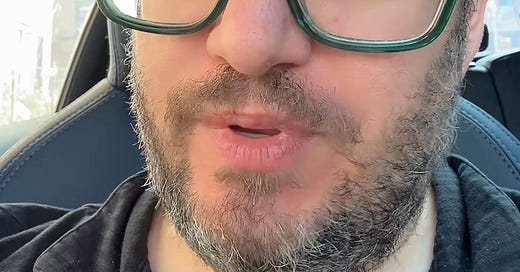I was surprised as anybody when my United healthcare google news alert popped off telling me an anonymously owned shell company was submitting what's known as a “mini tender offer” to buy one percent of United health group. What is this witchcraft? Is some virtuous young person looking to open a trap door into control of the world's largest healthcare company? So, I looked into it.
Tutanota LLC made an offer to the shareholders of United health group: sell us one percent of the company. They even specified a share price, $325 a share! That's well about the current share price of United!
However, not all was as it seems. There was some fine print. With Insurance insurance companies, there's always a fine print. This semi anonymous holding company doesn't have any owners I could find, but they run this playbook before—join me for a trip down very obscure capital markets memory lane!
Bank of America, for instance, reported that Tutanota’s first mini-tender for BofA shares occurred in 2021 . Intel and Home Depot were also targets around 2021 . Since then, Tutanota has rolled out dozens of such offers annually .
My readers will remember that these companies had periods of time they were doing poorly, like UHG. These are big companies that were experiencing periods of high volatility.
There is no evidence of Tutanota attempting traditional acquisitions or engaging in activism; instead, its history is one of serial mini-tenders aimed making money rapidly.
They look for Big companies that were once trustworthy like United and Intel, and then they make an offer to buy the shares. But the fine print of that offer says that they actually only buy the shares if the value of the shares is higher than the price they're offering. So although $325 is more than United is worth today, on the date the contract becomes due, it only execute if the share price is above 325. Thus 100% of the people who are agreeing to sell their shares to this “investment firm?” They're all getting scammed. The big T only buys shares that cost less than the market price on the closing date. Their whole business strategy is to hope people are confused. And it probably works! Remind you of anyone?
Each time they pull this, the targeted company’s management has issued statements urging shareholders to reject the offer, often citing the same reasons: the price is too low or conditional, the offer is unsolicited, and the bidder is unassociated with the company .
They're looking to buy as many shares from as many suckers for less than they're worth, and then immediately sell them. This probably works pretty well for them—a lot of people aren't paying attention, and people have heard United is not doing well on the news. If they look today, they'll see it's $300ish, and if they look at the offer, it looks like they're making 25 bucks per share. But then the share price goes up to 330, and this investment company buy your share for 325, and then sells it for five bucks in free profit.
Their investment strategy is a tax on those who are not paying close attention to the contract. Which, at least in this case, it's pretty similar to the business case for the underlying asset.












Share this post